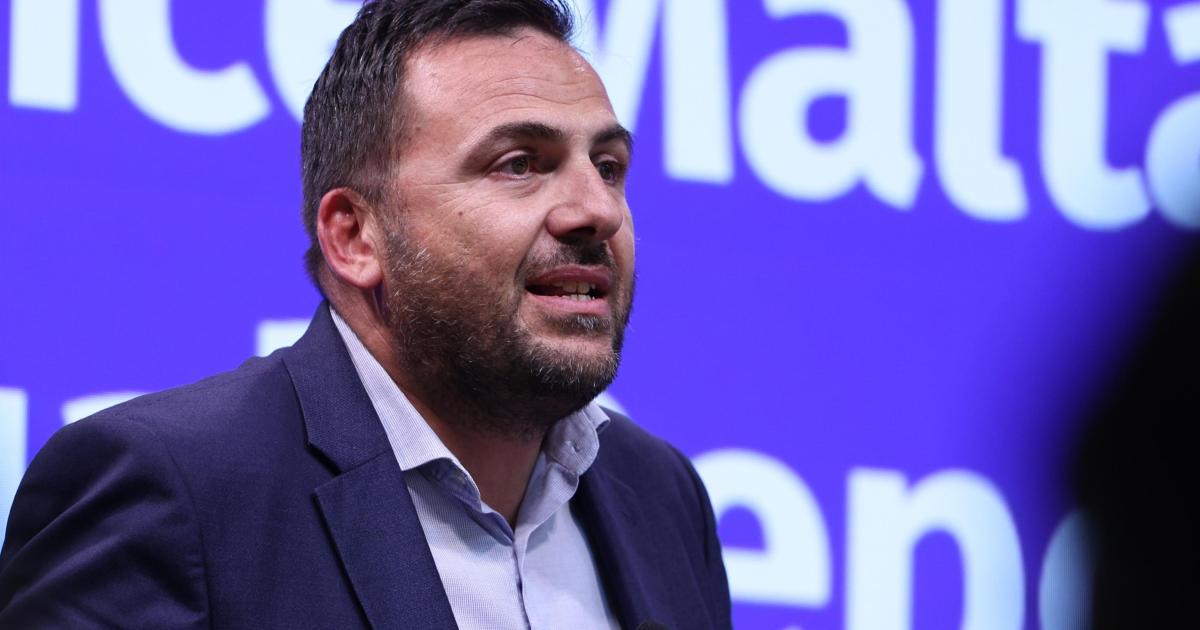Fresh from a recent wealth management conference, George Vella, chairman of FinanceMalta, seemed invigorated. “The event was exciting and engaging, but to me, it represented what we should be doing more as an industry: bringing people together to spark the discussions that are needed and to showcase how alive and dynamic Malta’s financial services sector has become.”
“There’s a real buzz in the air,” he began. “For the first time, we have the MFSA, FinanceMalta, and the Malta Financial Services Advisory Council all sitting at the same table, focusing on the same topics, tackling the same challenges and planning the future of this industry together.”
“Everyone’s understanding is on the same level, and the sector is very much alive. The sector is owning up.”
That sense of unity, he explained, is something Malta’s financial services sector has not always enjoyed, and yet, it is crucial if the country wants to reach its ambitious targets.
“The objective we’ve been given is very clear. Currently, the sector contributes around €2 billion to the economy, which represents between 9% and 10% of Malta’s GDP. By 2035, we want to more than double that. The target is reaching between €4.5 and €4.8 billion.”
“Admittedly, there’s still much more that can be done. But we’re working on very solid foundations.”
A three-pronged strategy for the future
Mr Vella believes the next big leap forward will come from smarter integration and technology. He described a “three-pronged” strategy focused on data, transparency, and efficiency starting with the Malta Business Registry’s Central Data Repository.
“The goal is to streamline how we identify applicants doing business in Malta, particularly during KYC checks,” he explained. “By adopting a ‘once-only’ principle, and promoting standardisation and compliance, we can eliminate duplication and save both businesses and government agencies a lot of time and money.”
The second pillar is the MFSA’s Recteq initiative, aimed at harmonising data and modernising regulatory processes while the third involves the Malta Tax and Customs Administration’s new Digital Real-Time Reporting (DRR) and e-invoicing systems.
“These developments will not only increase efficiency but, more importantly, they will send a strong message about transparency,” he said. “It’s about showing the world that Malta means business.”
Legislation as Opportunity
When asked how Malta compares to larger jurisdictions like Ireland or Luxembourg, Mr Vella was quick to point out what sets the island apart.
“Being part of the EU and our proficiency in English are already big points in our favour. But, what singles Malta out is our legislative framework. It is solid, yet flexible,” he said.
“Take the gaming industry, for example. The legislation wasn’t there at first, but we moved quickly and drafted our own. That’s how we became the first to attract the big players.”
For the first time, we have the MFSA, FinanceMalta, and the Malta Financial Services Advisory Council all sitting at the same table
He recalled how the same approach was later applied to blockchain.
“When we realised the EU didn’t have a framework, we didn’t wait. We took the initiative and built one ourselves. That gave us legal certainty, and that’s what drew market leaders to Malta. Some of the world’s top crypto exchanges set up their European headquarters here because of that.”
It’s a pattern that echoes across other sectors, such as maritime.
“Ask anyone and they will all tell you that today, Malta is recognised as a top maritime jurisdiction because our legislation is second to none.”
“Legislation will always remain a source of opportunity,” he added. “And this is a huge point in our favour. There was a time when the industry went to the regulator to request changes in laws. Today, the regulator is the one suggesting those changes to help the industry tap into new opportunities. That’s a very positive shift.”
Learning from the past
Despite Malta’s progress, Vella acknowledges that reputational challenges still linger, especially following the country’s greylisting episode.
“Unfortunately, that was an ugly chapter but we’ve bounced back. What that experience taught us is that we need to do things differently. We’ve become more selective about where we promote Malta. Instead of hard selling what we offer abroad, we are going to focus on bringing people here, to show them what we’ve built and letting them experience our ecosystem first-hand.”
“We have a lot to offer. When they see it, they’ll understand that we mean business.”
The bigger picture
When our discussion turned to Malta’s broader economic environment, Vella didn’t mince words.
“Where we are today, as a country, is not coincidental,” he said. “This growth pattern has been building for the past 60 years. But somewhere along the way, we stopped reading the signs. Issues like traffic, infrastructure, and population growth could have addressed them before they became problems.”
“These are not abstract concerns,” he added. “They affect companies’ decisions about whether to relocate or invest in Malta. If we know where we want to go, then we need to start acting now.”
Wealth Management: Malta’s next frontier
Looking ahead, Vella sees enormous potential in the wealth management sector.
“The international political landscape has never been this unpredictable. And that’s exactly when investors look for stability. They want their wealth protected. Malta offers just that: stability, resources, and the expertise to manage wealth responsibly.”
“The stable legislative framework is in our favour. But sometimes I feel there isn’t enough hunger to pursue more opportunities. That’s something we need to change. Because, honestly, when it comes to financial services, we’re only skimming the surface. The potential to grow is all there.”
This interview was first published in The Corporate Times.

